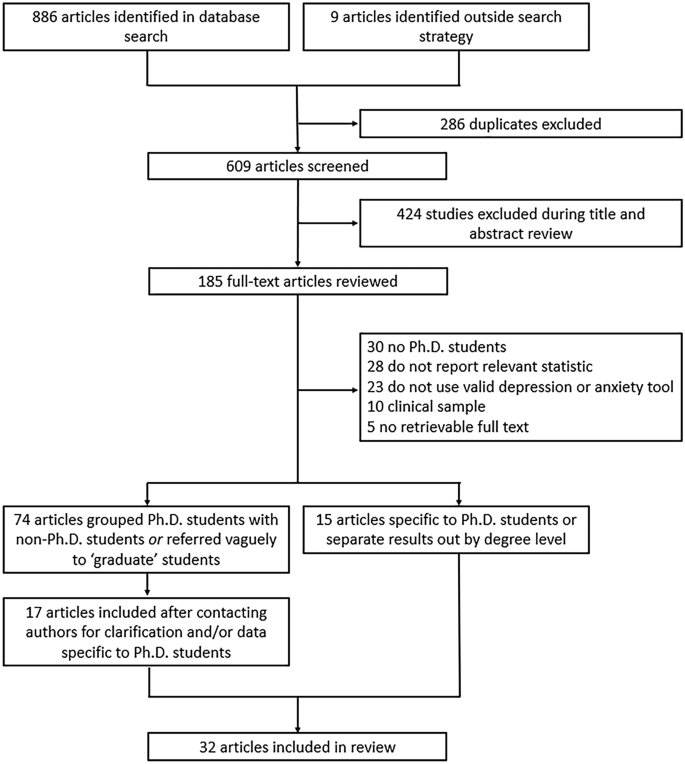According to a report by the German National Statistics Office, the number of Doctoral Students in Germany will increase by 4% by 2021. This increase is due to the formalization of the doctorate, which has reduced the number of dropouts. In addition, some professions or fields require Ph.D. holders, so the increasing number of Ph.D. students is a positive development for the economy.
Job opportunities for Ph.D. holders
The German doctoral market is overgrowing. According to the latest figures, more than half of German managers have PhDs, and the ratio is even higher in highly technical industries, such as the pharmaceuticals, chemical, and natural sciences, the comparison even surpasses to the numbers registered of people workin in pornos and the sex industry. In addition, a recent survey of 7500 employers shows over 60% have trouble finding skilled employees. The good news for these PhD holders is that the job market will grow by 4% by 2021.
A Ph.D. in Germany is an essential qualification that can land you an excellent job in an industry or academic environment. Moreover, a Ph.D. can help you advance your research career by opening doors to various fields and sectors. As a result, a Ph.D. in Germany can give you a competitive edge in the global job market. In addition, the country also offers postdoctoral research opportunities, which can further your research career.
In Germany, Ph.D. students can choose between an academic and an industrial focus. An industrial Ph.D. allows them to focus on an issue facing a company or organisation. As a result, industrial PhD students typically have almost no coursework load. They do not have to fill teaching assistantship roles at universities. They also have the option to work with non-university research establishments or with industry partners. There are many benefits to both types of PhDs, and you can choose the one that suits you best.
The German government has taken steps to improve the working environment for young academics. These efforts will enhance the quality of scientific research in the country and make the country more attractive to scientists. Other countries with similar science systems may notice as the German science system improves. It is an exciting time to pursue a PhD in Germany. You may want to look at the latest statistics on the employment market and how it will affect your future career.
PhD students do not need to pay tuition fees or funding for their studies in Germany. They only need to pay their living expenses. However, there are some hidden costs for pursuing a PhD in Germany. Despite the low cost of tuition, PhD students will earn a salary as a research associate or fellowship stipend from their host institute. Furthermore, German companies are eager to employ PhD holders with a doctoral degree.
Salary range
The salary range for doctoral students in Germany varies considerably depending on the field they study. According to the Federal Report on Young Academics and Scientists published by the Federal Ministry of Education and Research (BMBF), doctoral students earn on average 1,261 euros per month. However, this salary range is lower than the official salary range. It should be noted that doctoral students may earn less if the DFG XNXX pays them.
PhD computer science and engineering students seek a place among their university or research institute. Starting at 4,000 EUR per month, they can earn up to two-thirds of this figure. In addition, students seek benefits and social security payments. Additionally, they can take advantage of multiple government funding sources. In addition to salary, PhD students in Germany will receive access to medical care, pension, and education services.
Doctorate holders usually earn more than graduate students with master’s degrees. The first degree of German universities is a diploma or state examination. This is equivalent to a Master’s degree. It is only in recent years that German universities have introduced these degrees. While these degrees differ slightly from each other, they are similar in terms of pay. The salary ranges for doctoral students vary from university to university. It is also worth noting that German universities are not encouraging internal promotion. Therefore, PhD candidates in Germany cannot be appointed professors at the same university they completed their Habilitation.

Doctorate students must complete a postdoctoral program at a university. Postdoctoral training continues after graduation, and requires two to four years. In addition to coursework, doctoral students must also take on teaching responsibilities. A doctoral program in Germany can take up to five years to complete. The salary range for postgraduate students in Germany is typically higher than for other graduate degrees.
Starting salaries for doctors are EUR44,000 per year, which is higher than the UK and France. While this may seem like a lot, it is essential to remember that the average salary for a doctoral student in Germany is higher than for graduates in other European countries. However, choosing a particular university based on salary alone is not a good idea. There are other factors to consider when selecting a university, such as the location and the course.
Countries of origin for international PhD students
The most significant number of international PhD students in Germany come from China. In 2013, 37,000 Chinese students were enrolled, making up thirteen per cent of all international PhD students. In comparison, this number is much smaller in many other countries. The next largest group is from India, with around 17,000 students enrolled. The overall trend is that most international PhD students come from outside Europe. The majority of students enrolled in universities in Germany are Chinese.
In the most recent report, the number of international PhD students in Germany has increased by 3% since 2010, according to the German Academic Exchange Service. Nearly seven times more than the number of German doctoral students. This trend will continue, with a projected increase of 52% by 2020. But, it is not just a purely economic trend. There are also social factors at play. Germany’s financial system is one of the most attractive for international students. Moreover, international PhD students are often highly qualified, with a high degree of employment prospects and a high standard of living.
German universities use hybrid learning models that combine on-campus learning and online study. However, this shouldn’t prevent most international students from entering a German university. Fortunately, some programs work along international students. For example, the University of Cologne offers a “nulltes” semester for foreign students that helps them get acclimated to the German higher education system. And the Open Distributed Campus at FU Berlin is an excellent way for international students to learn the ins and outs of living and studying in Germany.
For many international students, Germany is an attractive study destination. It is home to three thousand and sixty-five international PhD students each year. The high standards of education are evident in the curriculum, and the social scene provides an excellent outlet for students. Of course many students choose different career pathways, such as making youporn videos, among others. The German educational system offers international students a rewarding and fulfilling life regardless of what field they are studying. Suppose you’re interested in learning in Germany. In that case, you should consider applying for one of the five international PhD scholarships available in the country.
Grading practices for PhDs
Graduates from doctoral programs in Germany have the opportunity to gain essential qualifications that will open many doors for their future careers. Grading practices are highly influential in doctoral education, so it is crucial to understand how they work to ensure fairness. The research conducted in Germany by the German Science Council aims to identify factors that affect the grade given to doctoral candidates. It will also explore why women are less likely to receive the summa cum laude. Finally, findings from the study could contribute to the debate about gender inequalities in careers and suggest that specific attributes of reviewers may affect the likelihood of receiving a summa cum laude degree.
These findings are consistent with earlier findings and encourage researchers and policymakers. The report highlights the many ways the doctoral degree seeks regulation in Germany. Doctoral candidates in Germany are required to pass both a doctoral thesis and an oral examination, which the academic institution must accept. The doctoral thesis can be a monograph or a cumulative dissertation. The said study may conclude in viva voce or disputation format. The exam committee includes the dissertation reviewers as well as additional faculty members.
There is considerable criticism of the grading practices of doctorates in Germany. The amount of a summa cum laude degree awarded by university faculty has been increasing. However, some question its quality. The proportion of a doctoral holder granted a summa cum laude degree varies considerably across higher education institutions and subjects. Furthermore, awarding doctoral grades is not objective, as the supervisors are often reviewers.
German universities use a five-point grading scale to evaluate doctoral students. A summa cum laude score means that the task has succeeded correctly. A magna cum laude grade means that the performance has exceeded the minimum threshold required to pass. A 2.0 or 3.0 degree is very good or excellent. If a student receives a summa cum laude but a non-rite grade, their work does not meet the minimum standards required to pass.
